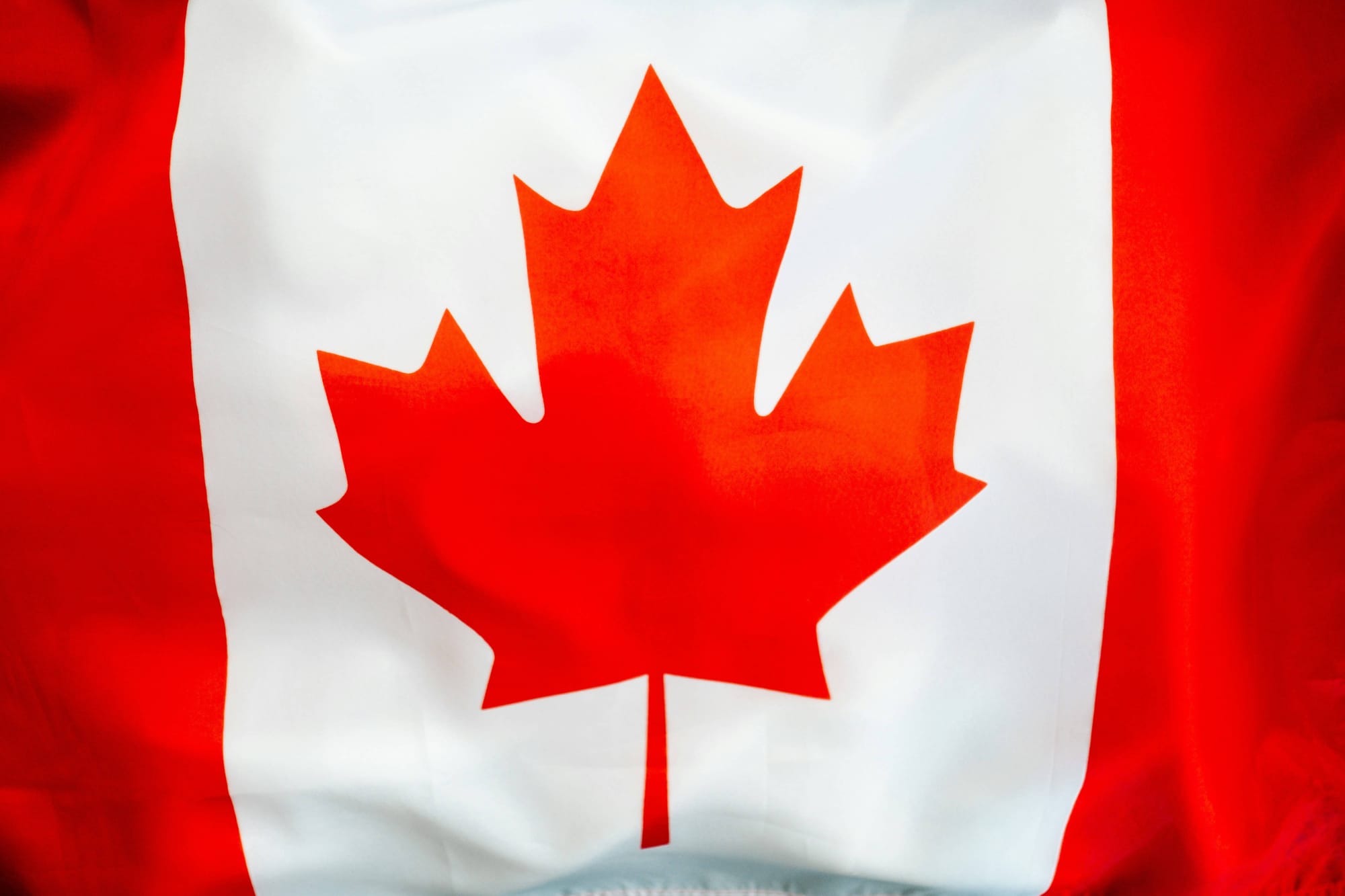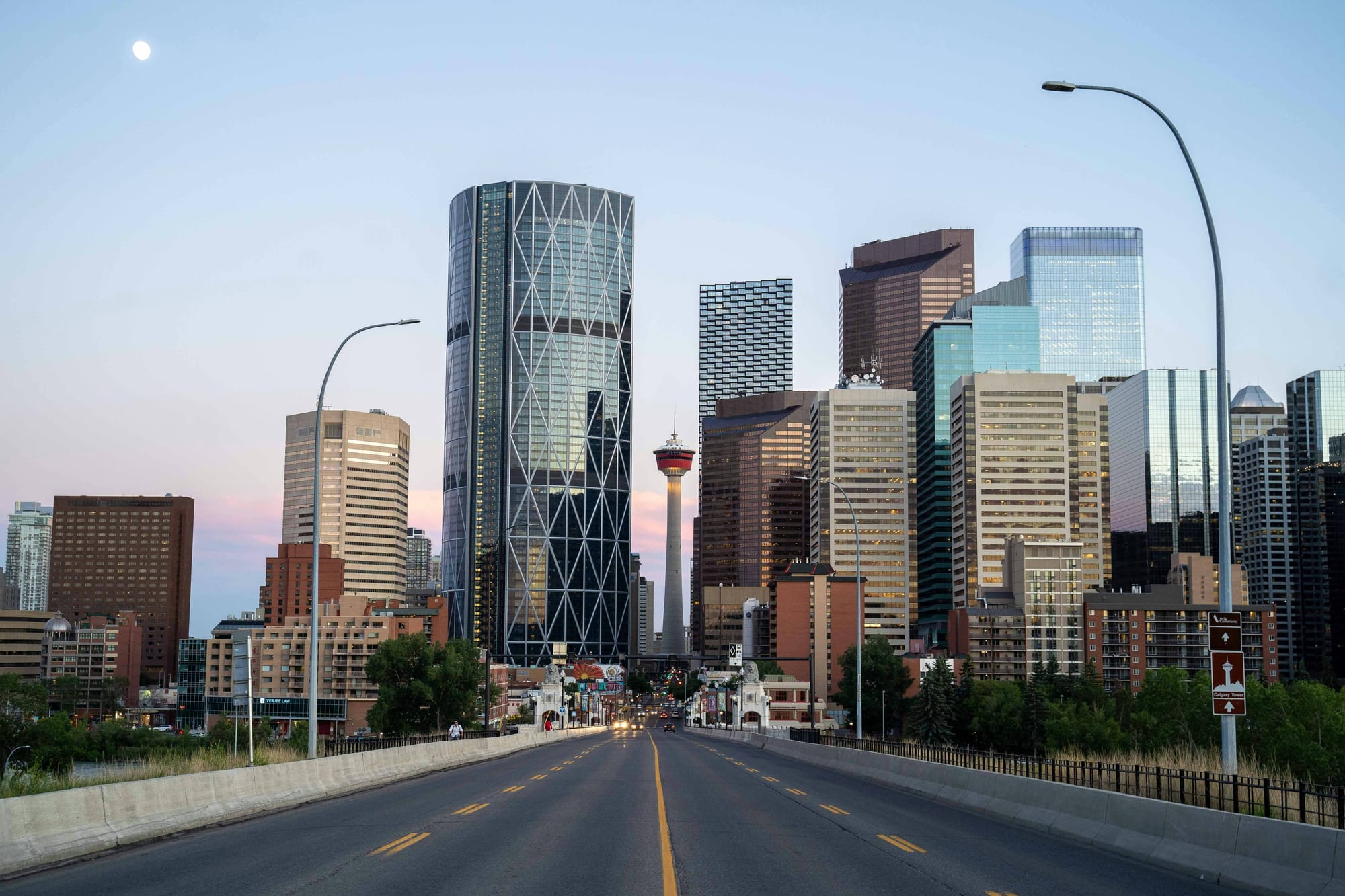Second citizenship has become an important consideration for those looking to maximize their personal and professional options.
Citizenship is an asset, and multiple citizenships are fast becoming a literal portfolio of assets that individuals can use to achieve sovereignty.
And while we encourage the pursuit of this optionality, sometimes the right decision is to actually remove or renounce a citizenship, often, but not always, because of taxation or politics.
There are scenarios where being the citizen of a country is a liability, not an asset.
The decision to renounce Canadian citizenship often comes with complex personal and professional considerations.
Take, for instance, a dual US-Canadian citizen who faced this choice when offered a prestigious position at a US scientific research lab.
The catch? The role required a Top Secret security clearance, which meant renouncing their Canadian citizenship.
For someone whose Canadian identity held deep personal significance, this presented a challenging dilemma: weighing an incredible career opportunity against giving up a fundamental part of their identity.
This scenario illustrates why understanding the process, requirements, and implications of Canadian citizenship renunciation - including the possibility of eventually regaining it - is crucial for making an informed decision.

Understanding Canadian citizenship renunciation
Renouncing Canadian citizenship means voluntarily giving up your legal ties to Canada.
This process is governed by the Citizenship Act and administered by Immigration, Refugees and Citizenship Canada (IRCC).
It's a formal procedure that requires careful consideration, as it impacts your rights to live, work, and travel in Canada.
Unlike the U.S. citizenship renunciation process, which often involves tax considerations beyond the date of renunciation, Canadian citizenship renunciation is typically more straightforward as Canada presently doesn't tax its citizens living abroad.
The nature of Canadian citizenship
Before discussing renunciation, it's important to understand what Canadian citizenship entails.
Whether acquired through naturalization or birth, Canadian citizenship provides numerous rights and privileges, including the ability to live and work anywhere in Canada, vote in elections, and hold a Canadian passport.
Many individuals are dual citizens, holding both Canadian citizenship and citizenship of another country.

5 Reasons for Renouncing Canadian Citizenship
1. Security Clearance Requirements
Many positions in defense, government, or sensitive research sectors in other countries require exclusive citizenship. U.S. jobs requiring Top Secret clearance typically mandate renouncing foreign citizenships, including Canadian citizenship. This affects scientists, researchers, and defense contractors seeking career advancement in these fields.
2. Foreign Citizenship Restrictions
Several countries don't permit dual citizenship, requiring individuals to renounce their Canadian status when acquiring new citizenship. This is common in countries like Singapore, China, and Japan, where exclusive citizenship is mandated by law.
3. Professional Requirements
Political positions, government roles, and high-level corporate positions in other countries often require individuals to hold single citizenship. This includes individuals pursuing careers in public service, strategic industries, or seeking political office abroad.
4. Tax Optimization
While Canada doesn't currently tax its non-resident citizens (unlike the U.S.), some individuals choose to renounce in anticipation of potential future tax policy changes. This is particularly relevant for high-net-worth individuals structuring their international tax positions, though it's important to note this differs significantly from U.S. tax-driven renunciation cases.
5. Personal and Administrative Simplification
Individuals may choose to align their citizenship with their current life circumstances, particularly when they have established permanent lives abroad. This can streamline tax reporting, banking relationships, travel documentation, and legal obligations. This is especially relevant for those who received Canadian citizenship automatically through the 2009 or 2015 legislative changes but have no meaningful connection to Canada.
Eligibility requirements for renunciation
Before beginning the process, you must meet these essential criteria:
- Be a citizen of another country or become one if your renunciation is approved
- Live outside of Canada
- Be at least 18 years old
- Demonstrate the mental capacity to understand the significance of renouncing citizenship
- Not be subject to citizenship revocation proceedings
- Not be considered a threat to Canada's security
The Renunciation Process: two distinct paths
Standard renunciation application
This is the most common path for Canadian citizens who voluntarily wish to give up their citizenship. The process involves submitting a comprehensive application package and paying the required fee. The Canadian immigration system handles these applications through dedicated processing centers.
Special Cases: 2009 and 2015 Legislative Changes
A separate application process exists for individuals who automatically received Canadian citizenship due to changes in the Citizenship Act in 2009 or 2015.
This path typically applies to those who may have had no prior connection to Canada and requires no application fee. These changes to citizenship regulations created unique situations that the government has addressed through specific procedures.
3 Steps to Renounce Canadian Citizenship
1. Selecting the Appropriate Application Form
Two options are available based on your situation:
- Standard Application to Renounce Canadian Citizenship (Form CIT0302)
- Special Application under R7.1 (Form CIT0496) for those affected by 2009/2015 legislative changes
2. Document Preparation and Submission Requirements
Gather these essential documents:
- Valid foreign passport or proof of other citizenship
- Canadian citizenship certificate (if applicable)
- Birth certificate
- Government-issued photo identification
- Professional passport-style photographs
- Supporting documentation for name changes (if applicable)
3. Processing Locations and Procedures
The application submission process varies based on your location:
- Toronto and surrounding areas: Submit through local IRCC offices
- Other Canadian locations or United States: Submit to the Case Processing Centre in Sydney
- International locations: Submit through the nearest Canadian embassy, high commission, or consulate
Current processing times average approximately 15 months, though urgent processing may be available in certain circumstances.

Costs Associated with Renouncing Canadian Citizenship
Application fees and payment methods
The standard fee for renouncing Canadian citizenship is $100. However, there is no fee for applications under the R7.1 provision (2009/2015 legislative changes). It's important to note that application fees are non-refundable once processing begins.
Certificate of renunciation
Upon approval, IRCC issues a certificate of renunciation, which serves as official proof that you are no longer a Canadian citizen. This document is crucial for various purposes, including obtaining citizenship in another country that doesn't allow dual citizenship.
Staying in Canada After Renouncing Citizenship
Once you've renounced your Canadian citizenship, your status changes to that of a foreign national. You cannot remain in Canada without proper immigration status. To stay in Canada after renunciation, you must apply for appropriate permits or visas like any other foreign national. This means obtaining either temporary resident status through work permits or study permits, or applying for permanent residence.
If you wish to live in Canada long-term after renouncing citizenship, you'll need to navigate the immigration system from scratch - starting with permanent residence, maintaining physical presence requirements, filing tax returns, and potentially pursuing citizenship again through naturalization.
Remember that the renunciation process itself requires you to be living outside of Canada when you apply and maintain residence abroad until the process is complete.
Immediate changes to status
After renunciation is approved:
- You lose the right to hold a Canadian passport
- You become a foreign national in relation to Canada
- You no longer have voting rights in Canadian elections
- You lose access to Canadian consular services abroad
Long-term implications for travel and residence
As a former citizen, you'll need to navigate the Canadian immigration system like any other foreign national:
- Obtain an eTA or temporary resident visa to visit Canada
- Apply for appropriate permits to work or study in Canada
- Consider permanent resident status if you wish to live in Canada long-term
- Follow standard immigration procedures for any future entry to Canada
Reacquiring Canadian Citizenship After Renouncing
While it is possible to regain Canadian citizenship after renouncing it, the process requires several steps through the Canadian immigration system:
- Apply for permanent residence and be approved
- Fulfill physical presence requirements as a permanent resident of Canada
- File at least one year of income tax returns
- Submit a citizenship application to resume under subsection 11(1)
- Meet all other citizenship requirements
- Complete any necessary naturalization procedures
Special Considerations
U.S. Citizens and citizenship
The interaction between U.S. citizenship and Canadian citizenship presents unique considerations. U.S. citizens facing citizenship decisions should carefully evaluate their options, as the U.S. has specific tax implications for its citizens that Canada does not impose.
Impact on dual citizens
For current dual citizens, renouncing Canadian citizenship may affect their status and rights in multiple jurisdictions. It's essential to understand how renunciation might impact existing arrangements and privileges in other countries.
Stay ahead of exit tax increases
Remember—in the near future, governments may increase the exit tax. When you leave the country, your final tax return may require you to pay capital gains on more on assets you haven't sold—as if you had sold them.
There are proposals in place that may even increase this burden in the near future:
🇨🇦 Canada proposes a $25,000 penalty plus a 2x exit tax to citizens who leave the country
— Alex Recouso (@alexrecouso) May 5, 2024
I've been warning you: modern feudalism is coming to Western countries pic.twitter.com/aFAAoMwpRu
Frequently Asked Questions (FAQ) About Renouncing Canadian Citizenship
How long does it take to renounce Canadian citizenship?
The standard processing time is approximately 15 months. However, urgent processing may be available in specific situations such as:
- Pressing employment requirements in another country
- Upcoming immigration deadlines
- Other documented compelling circumstances
How much does it cost to renounce Canadian citizenship?
The standard government processing fee is $100 CAD for regular renunciation applications. However, if you're renouncing under the special provisions related to the 2009 or 2015 legislative changes (Form CIT0496), there is no fee. Remember that these fees are non-refundable once processing begins.
What documents do I need to renounce my citizenship?
All applications must include:
- A completed renunciation application form (CIT0302 or CIT0496)
- Proof of current or future citizenship in another country
- Valid government-issued photo identification
- Canadian citizenship certificate (if you have one)
- Birth certificate or equivalent
- Marriage certificate (if your name has changed due to marriage)
- Professional passport-style photographs
All documents must be:
- Original or certified copies
- Translated to English or French by a certified translator if in other languages
- Properly authenticated when required
Can I live in Canada while my renunciation application is processing?
No. You must be living outside of Canada when you apply to renounce your citizenship and maintain residence outside Canada until the process is complete.
What happens after I submit my renunciation application?
The process typically includes:
- Initial review for completeness
- Detailed assessment of eligibility
- Possible requests for additional documentation
- Final decision
- Issuance of a certificate of renunciation if approved
Can I still visit Canada after renouncing my citizenship?
Yes, but you'll need to follow standard immigration procedures like any other foreign national:
- Apply for an eTA or visitor visa depending on your new citizenship
- Meet standard entry requirements
- Obtain necessary permits for work or study
- Follow maximum stay durations
Can I get my Canadian citizenship back if I change my mind?
Yes, but the process is complex and requires:
- Applying for permanent residence
- Being physically present in Canada as a permanent resident
- Filing Canadian income tax returns
- Meeting all regular citizenship requirements
- Submitting an application to resume citizenship
What happens to my Canadian passport when I renounce?
You must return your Canadian passport along with your application to renounce citizenship. The passport will be cancelled, and you'll need to travel using your other nationality's passport.
Will renouncing affect my children's citizenship status?
- Current children: Renunciation does not affect the Canadian citizenship status of your existing children
- Future children: Children born after you renounce will not automatically be Canadian citizens
- Minor children: You cannot renounce citizenship on behalf of your children under 18
Can I work in Canada after renouncing?
Yes, but you'll need to:
- Obtain a valid work permit
- Meet all immigration requirements
- Secure a job offer from a Canadian employer
- Comply with relevant visa conditions
What if I need to renounce urgently?
For urgent processing requests:
- Mark your envelope clearly with "URGENT - Renunciation of Canadian Citizenship"
- Include a detailed letter explaining your urgent circumstances
- Provide supporting documentation for your urgency claim
- Submit through appropriate channels based on your location
How is Canadian citizenship renunciation different from U.S. citizenship renunciation?
Key differences include:
- Canadian renunciation typically costs less
- Canada doesn't have exit tax requirements
- Canadian process usually takes longer
- U.S. publishes names of those who renounce; Canada doesn't
- Different tax implications and reporting requirements
Differences Between Renouncing and Revoking Canadian Citizenship
Renunciation and revocation of Canadian citizenship are fundamentally different processes:
Renunciation
A voluntary process where you choose to give up your Canadian citizenship. You initiate the application, pay the fee, and must meet eligibility requirements including already having or being about to obtain citizenship in another country. This is a personal choice that you control.
Revocation
An involuntary process where the Canadian government strips you of citizenship. This typically occurs due to:
- Fraud or misrepresentation in your citizenship or immigration application
- Concealing criminal convictions during the citizenship process
- Security concerns or involvement in organized crime
- Other serious breaches of citizenship obligations
Key differences:
- Control: Renunciation is your choice; revocation is a government action
- Timing: Renunciation follows your timeline; revocation can happen at any time
- Future options: After renunciation, you can potentially resume citizenship later; after revocation, you cannot
- Living location: Renunciation requires living outside Canada; revocation can occur while you're still in the country
- Documentation: Renunciation provides a certificate of renunciation; revocation results in a notice of citizenship cancellation
Making an Informed Decision
The decision to renounce Canadian citizenship should not be taken lightly. Consider consulting with immigration professionals who can provide guidance based on your specific situation. Remember that while renunciation can be reversed through the resumption process, this path requires significant time, effort, and successful completion of the permanent residence process.
Strategic Considerations
Before proceeding with renunciation, carefully evaluate:
- Your future travel needs to Canada
- Potential career opportunities in Canadian markets
- Family connections and obligations
- Access to Canadian healthcare (like MSP and OHIP) and social services
- Impact on future generations (children born after renunciation)
- Alternative options like maintaining dual citizenship where possible
While this is not tax advice, bear in mind that advice you may have heard about US citizens and their tax-related reasons for renouncing American citizenship may not apply to Canadians.
Manage risk and stay informed
Remember that dual citizenship provides strategic advantages in a world—multiple citizenships are your leverage against the monopoly one single government can exert on you as a citizen.
Before proceeding with renunciation, ensure that the benefits of your decision outweigh the rights and privileges you'll be giving up as a Canadian citizen.
Consider how global mobility patterns and international relations might affect your decision in the long term, and remember there are significant downsides to being a state-less individual.




